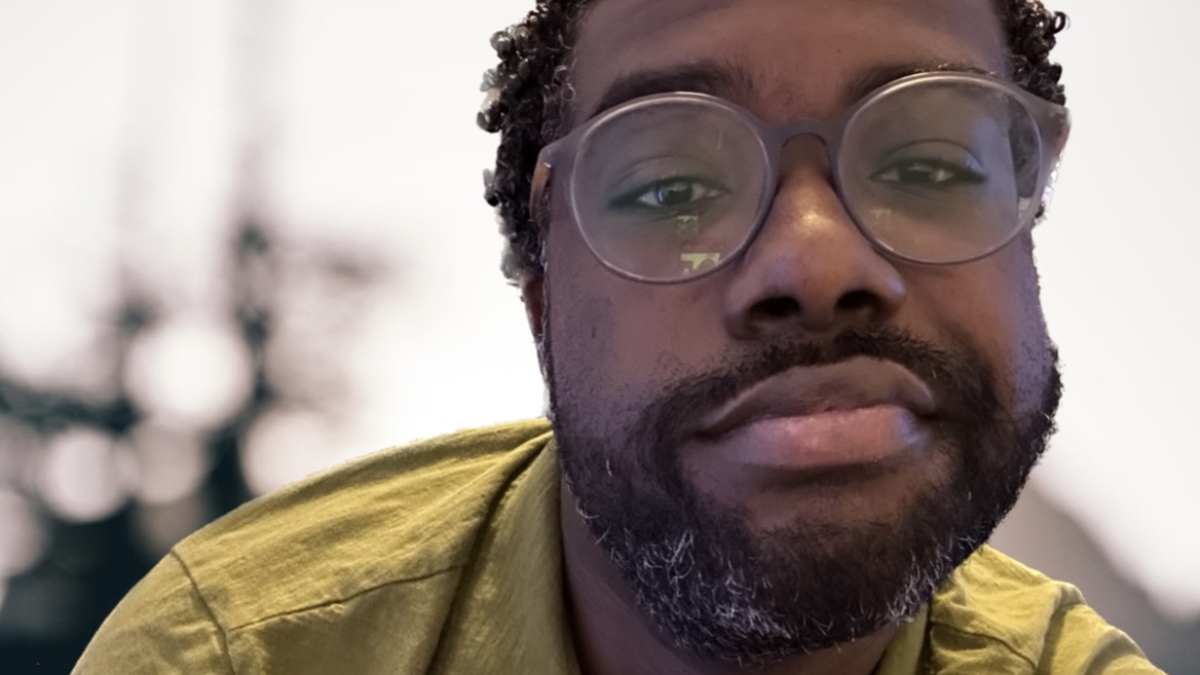ASU Uber Scholar, graduate shares journey from working in Disney park to political science

Julien Goodman
Editor's note: This story is part of a series of profiles of notable spring 2023 graduates.
Julien Goodman, after years of pursuing a variety of different degrees and careers, has finally found what he is passionate about and in doing so, has discovered the importance of passion in academia.
Goodman is an Uber Scholar who will graduate Arizona State University this May with a degree in political science from the School of Politics and Global Studies.
Growing up in Winter Park, Florida, Goodman received his GED in 2008. He went directly into a communications and public relations degree at Indiana Institute of Technology in Fort Wayne, but after a year he had to leave due to the cost of tuition.
He then went to Seminole State Community College in Lake Mary, Florida, where he interned at Walt Disney World for 10 months before transferring to the University of Montana - Missoula to pursue a degree in linguistic anthropology. Again, Goodman had to leave due to the cost of tuition.
He then decided to take a break from school and worked for Disney for nearly a decade before getting laid off due to the COVID-19 pandemic.
By the end of 2020, he was a delivery driver for Uber Eats, and after completing 1,000 deliveries, Uber covered his tuition to attend ASU Online.
Goodman is a member of the Online Undergraduate Research Scholars program, which he referred to as an “eye-opening” experience due to his appreciation for the methodologies and procedures in advanced academic research.
Question: What was your “aha” moment when you realized you wanted to study political science?
Answer: When I was working at Disney World, I was introduced to the television series "The West Wing," and that's when I had my "aha!" moment. The president's former press secretary and current chief of staff was a character named C.J. Cregg. I was impressed by her keen intellect and sharp reasoning, as well as her inherent capacity to make others laugh. She was articulate, witty, good-natured and competitive, but she also asserted her opinion and occupied space when it wasn't advantageous to do so. To a large extent, my political beliefs and worldview are based on the ideals of that fictional character.
Q: What’s something you learned while at ASU — in the classroom or otherwise — that surprised you or changed your perspective?
A: I learned that academia is fun when you study something that ignites your passions. If it doesn’t set your soul ablaze, then you have the wrong major!
Q: What’s the best piece of advice you would give to students?
A: Instead of giving the impression of being something, just become it. If you want to be the greatest, you must earn that distinction. If you want intelligence, you must put forth effort and study. Sure, it's easier to fake it, learn big words and memorize buzz phrases that make you seem knowledgeable; however, if you ever have to demonstrate what you're made of, you'll wish you took the time.
Q: What was your favorite spot for power studying?
A: As an online student, my favorite place to study was in my apartment early in the morning before dawn broke. Getting up before the sun made me feel like I had a leg up on the day and gave me the edge I needed to do my schoolwork even when I was tired.
Q: What are your plans after graduation?
A: I'm applying to Princeton University this fall. If they will have me, I hope to enroll in a master's of public administration or master's of public policy/juris doctor program. If I have a choice, I'd like to get that JD from Georgetown University in Washington, D.C.
Q: If someone gave you $40 million to solve one problem on our planet, what would you tackle?
A: Every year, many foster children reach the age of adulthood and are thrown into society without a feeling of belonging or protection. One of two things will happen: They sink, or they swim. I would want to create a program that provides these 18-year-olds with the structure, direction and support they need to grow and thrive into well-adjusted citizens but also gives them the tools they need to compete with others who have had less traumatic pasts. A traumatic history need not result in despair and poverty.
More Sun Devil community

Open Doors report: ASU’s doors are open to the world
For the fourth straight year, Arizona State University is being recognized as the top public university choice of international…

ASU students receive $25,000 scholarships from NBA legend Magic Johnson
By Henry Smardo Serenity Reynolds Cronkite student Serenity Reynolds balances classes,…

ASU Accessibility Awareness Day advocates for a more inclusive digital future
By Jonathan CrowellAs technology continues to drive learning and research innovations, so do efforts to ensure digital…